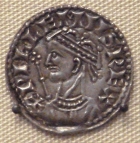Depth Study
Depth studies study a short period of time (25-50 years).They are split between Non-British (Wider World) Depth Studies and British Depth Studies. There are, again, a wide range of options to choose, from OCR’s Britain in Peace and War 1900-1918, to Pearson’s Anglo-Saxon and Norman England, c1060–88. Departments will need to consider how the Depth Studies will complement the other teaching units at Key Stage 4 and how they will relate to aspects of Key Stage 3. Obviously some schools will have some overlap (e.g. If taking the Normans option) and they will need to plan how they can use this to their advantage. Read more
Sort by:
Date (Newest first) | Title A-Z
Show:
All |
Articles |
Podcasts |
Multipage Articles
-

The Normans
ArticleClick to view -

The Spice of Life? Ensuring variety when teaching about the Treaty of Versailles
ArticleClick to view -

Triumphs Show 155: beyond trivial judgements of 'bias'
ArticleClick to view -

Triumphs Show 170: making a place for fieldwork in history lessons
ArticleClick to view -

Using family history to provoke rigorous enquiry
ArticleClick to view -

Why can't they just live together happily, Miss?' Unravelling the complexities of the Arab-Israeli conflict at GCSE
ArticleClick to view

